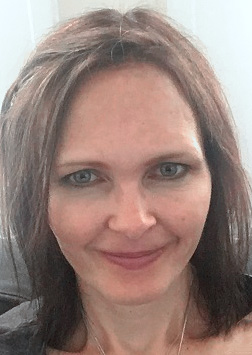


|
||
|
||
I recently served on a panel at the Toronto RightsCon 2018 conference (Making Safe Online Access to Affordable Medication Real: Addressing the UN Human Rights resolution for access to essential medicines), where I represented the perspective of Americans struggling to afford their daily medications and desperate to have safe, affordable Internet access to their prescriptions.
These Americans may not understand the inner workings of the Internet, but they do understand its mission of providing global access to information, products, and services. They know there are “bad actors” out there, as there are in any segment of our society. They also know how to find the legitimate pharmacies, and get the medications they need, at prices they can pay.
We can usually find fair prices for the things we need in a marketplace close to home, but prescription drugs in the U.S. are not fairly priced. The global marketplace available through the Internet can provide patients with fair prices for life-saving prescription medications.
However, there are people who use “rogue pharmacies” to scare patients, while at the same time maintaining the exorbitantly high cost of prescription medications. This is an ongoing, serious health crisis for many Americans who are desperate for relief and want the government to act.
The cost of prescription medications is higher in the U.S. than any other country in the world because there are no restrictions or limitations on how much companies can charge, so these “big pharma” global giants charge ‘whatever the market will bear.’
These companies can increase the price of medications for any reason… or no reason whatsoever. Many people are then forced to choose between their medications and gas, food, or even their mortgage. Or, they skip doses, split pills, or forgo medications completely.
In fact, an estimated 35 million Americans fail to adhere to their prescribed drug regimens due to cost, according to a Commonwealth Fund study.[1] In another study by the Harvard School of Public Health and Kaiser Health Foundation, 50 percent of Americans said they couldn’t afford medication and became sicker as a result of not taking medicine.[2]
Once again at RightsCon, it was well-noted that for years, millions of Americans facing this crisis have purchased their prescriptions from licensed, legitimate Canadian pharmacies that provide a lifeline to those in need of affordable and often life-saving daily medications. But once again, more misleading information along with impractical registration criteria seek to erode patients’ trust in licensed, legitimate online pharmacies that have chosen not to register or are blocked from using a .Pharmacy domain name.
Clearly, only licensed, legitimate online pharmacies should be able to sell prescription medications upon receipt of a valid prescription and with adherence to proper safety protocols. However, neither the location of the licensed pharmacy, the domain it uses, nor the location of the patient should impact affordability or access.
After all, the Internet was created to expand freedoms, protect human rights and build a global community. Internet protocols and policies must reflect the realities of how people use the Internet today because the Internet is, in some cases, the only access patients have to affordable maintenance medications.
We believe the Internet community can and should protect access through policymaking that embraces safe, legitimate pharmacy websites regardless of their location and domain name. To do otherwise is to allow the Internet to be used as a tool for censorship.
As an advocacy organization that fights for everyday Americans, we believe that access to safe and affordable prescription medications should not be a privilege reserved for the wealthy among us. Instead, we believe it is a human right and, therefore, must be protected through cyber policymaking, effective Internet governance, and updated amendments to outmoded laws so that such policies truly meet the needs of patients.
This is a critical time for protecting our human rights at its intersection with digital technology. As a global Internet community, we must stand up to those who are using the Internet to restrict options that support and protect fair access to medicines.
All Americans deserve access to safe and affordable medications.
[1] Commonwealth Fund: http://www.commonwealthfund.org/~/media/files/publications/issue-brief/2015/jan/1800_collins_biennial_survey_brief.pdf
[2] Harvard School of Public Health and Kaiser Health Foundation: https://kaiserfamilyfoundation.files.wordpress.com/2013/01/7371.pdf
Sponsored byRadix

Sponsored byWhoisXML API

Sponsored byVerisign

Sponsored byVerisign

Sponsored byDNIB.com

Sponsored byCSC

Sponsored byIPv4.Global
